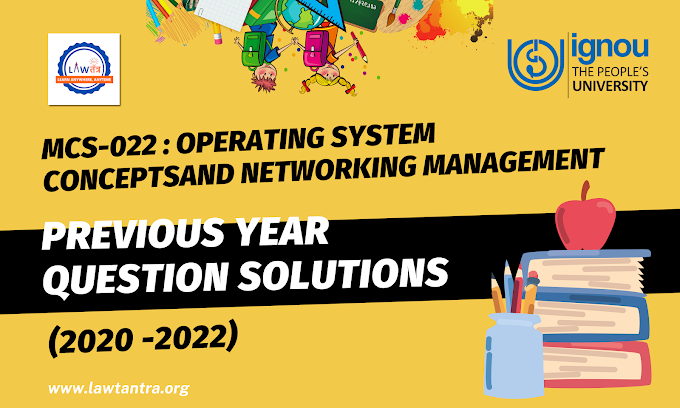Political culture theory has passed through several periods of intensive development and high interest from both social and political science research (Seligson 2002; Eckstein 1988; Elkins and Simeon 1979). Its success has been based on the explanatory power of its arguments regarding the intermediate role culture plays in the relation between the citizens and the dynamics of the polity structure, organization and operation. It has also known long periods of critics and harsh denials of its very explanatory power, philosophical backgrounds, and methodological means (Welch 2013; Steinmetz (1999); Jackman and Miller 1996; Reisinger 1995; Pateman 1971; Lijphart 1980; Dittmer 1977). One such critical aspect is that political culture theory does not actually provide for an ontology and epistemology of its own, it just suggests dimensions of comparative analysis without having fundamentally specified what it is and how it works (Welch 2013). Moreover, it employs attitude measurements and evaluations of attitudes’ impact on political behavior or action deliberation without actually having provided for attitude operationalization. Attitude research has ever since developed an impressive conceptual and methodological endeavor for achieving an operational form of the attitude structure as it has been defined by Allport (1929, 1935). The spectacular historical development in attitude fundamental and methodological research has not been closely followed by similar efforts in political culture theory and methodological research. Another critical aspect is that political culture theory has not integrated culture and state studies in a unified conceptual and operational framework (Steinmetz 1999).
Observing the methodological developments in the political culture research and connected areas, one could expect that they would have effects on the ontological and epistemological aspects which have long been waiting for a sound approach in political culture theory. There are several possible explanations of such expectations.
One such possible explanation could regard a new view based on a new type of support—the big data—the advanced technologies of the artificial as well as social media provide for the approaches on political participation in both virtual and real environments, which potentially modify the classic view on mass attitudes formation and change, political identities or political involvement. Not only that attitude survey research and, consequently, attitude measurements would be substantially transformed by the new technologies and the research methodologies they support, but the fundamental, methodological, and operational research on mass attitudes emergence as well as research on attitude structural components—affect and emotions, values and beliefs—have already been re-considered, and this seems to be only the beginning of a long and sophisticated chain of changes.
Another possible explanation addresses the actual need that political culture research could employ the virtual generative experiments which provide for the simulations of the potential dynamic evolutions of society and polity by means of the artificial societies (Epstein and Axtell 1996) and artificial polities (Cederman 1997; Cioffi-Revilla and Rouleau 2010) methodologies. Though initially inspired and developed within the areas of conflict studies and international relations, these theories as well as their associated methodologies, mainly based on artificial agents, complex adaptive systems, and artificial life technologies, have seriously questioned political methodology means and, moreover, have indeed changed the research methodologies in other social sciences, like sociology and social-psychology. The impact of these radical changes has resulted in new disciplines, (i.e., computational sociology), and have confirmed similar phenomena which happened in economic sciences (computational economy) or linguistics (computational linguistics). A phenomenon equivalent to a “earth-quake” in the advanced technologies of the artificial which started in early 1980s and has been intensively employed in social and political research, has been felt like a “tsunami” in these areas since the classic research methodologies (that is, based exclusively on public surveys) have been almost “flooded” by the generative experiments in which data are generated and only the outcomes of simulations could be efficiently compared with those obtained by empirical means (Flache et al. 2017). This phenomenon has subtly penetrated the political methodology research (Voinea 2016), and has even confronted with the dominant classic school: experimental political science (Druckman et al. 2011). Once the methodological backgrounds were shaken up, and the door for change was slightly opened, the wave is expected in the short run to hit massively the political methodology research.
In Hindi
राजनीतिक संस्कृति सिद्धांत सामाजिक और राजनीतिक विज्ञान अनुसंधान दोनों से गहन विकास और उच्च ब्याज (सेलेगॉन 2002); एल्किन्स और शिमोन 1979) के कई दौर से गुजरा है। इसकी सफलता नागरिकों के बीच संबंधों और राजनीति संरचना, संगठन और संचालन की गतिशीलता के संबंध में अपने तर्क की व्याख्यात्मक शक्ति पर आधारित है। यह आलोचकों की लंबी अवधि और इसकी व्याख्यात्मक शक्ति, दार्शनिक पृष्ठभूमि, और पद्धतिगत साधनों (कठोर 2013; स्टीनमेट्ज़ (1999); जैकमैन और मिलर 1996; राइजिंग 1995); पेजेटेर 1971; लिट्मेटर 1977; ऐसा ही एक महत्वपूर्ण पहलू यह है कि राजनीतिक संस्कृति सिद्धांत वास्तव में स्वयं के एक ऑन्कोलॉजी और महामारी विज्ञान के लिए प्रदान नहीं करता है, यह सिर्फ मौलिक रूप से निर्दिष्ट किए बिना तुलनात्मक विश्लेषण के आयामों का सुझाव देता है कि यह क्या है और यह कैसे काम करता है (वेल्च 2013)। इसके अलावा, यह रवैया माप के लिए प्रदान किए बिना वास्तव में राजनीतिक व्यवहार या कार्रवाई विचार-विमर्श पर दृष्टिकोण के माप और मूल्यांकन के प्रभाव को नियोजित करता है। अभिवृत्ति अनुसंधान ने तब से एक प्रभावशाली वैचारिक और कार्यप्रणाली के रूप में विकसित किया है जब तक कि वह एल्पपोर्ट (1929, 1935) द्वारा परिभाषित किया गया है। रवैया मौलिक और पद्धतिगत अनुसंधान में शानदार ऐतिहासिक विकास राजनीतिक संस्कृति सिद्धांत और पद्धति अनुसंधान में समान प्रयासों के साथ निकटता से नहीं किया गया है। एक अन्य महत्वपूर्ण पहलू यह है कि राजनीतिक संस्कृति सिद्धांत ने एकीकृत वैचारिक और परिचालन ढांचे (स्टाइनमेटेज़ 1999) में संस्कृति और राज्य के अध्ययन को एकीकृत नहीं किया है।
राजनीतिक संस्कृति अनुसंधान और जुड़े क्षेत्रों में कार्यप्रणाली के विकास को देखते हुए, कोई यह उम्मीद कर सकता है कि वे राजनीतिक संस्कृति सिद्धांत में ध्वनि दृष्टिकोण के लिए लंबे समय से इंतजार कर रहे ऑन्कोलॉजिकल और एपिस्टेमोलॉजिकल पहलुओं पर प्रभाव डालेंगे। ऐसी उम्मीदों के कई संभावित स्पष्टीकरण हैं।
इस तरह की एक संभावित व्याख्या एक नए प्रकार के समर्थन के आधार पर एक नए दृष्टिकोण का सम्मान कर सकती है - बड़ा डेटा - कृत्रिम की उन्नत तकनीकों के साथ-साथ सोशल मीडिया आभासी और वास्तविक दोनों वातावरणों में राजनीतिक भागीदारी के दृष्टिकोण के लिए प्रदान करता है, जो संभावित रूप से संशोधित करता है। जन दृष्टिकोण पर व्यापक दृष्टिकोण गठन और परिवर्तन, राजनीतिक पहचान या राजनीतिक भागीदारी। न केवल उस दृष्टिकोण सर्वेक्षण अनुसंधान और, परिणामस्वरूप, दृष्टिकोण माप नई प्रौद्योगिकियों और उनके द्वारा समर्थित अनुसंधान विधियों से काफी हद तक रूपांतरित हो जाएगा, लेकिन जन दृष्टिकोण उभरने के साथ-साथ मौलिक, पद्धतिगत और परिचालन अनुसंधान के साथ-साथ रवैया संरचनात्मक घटकों पर शोध को प्रभावित करते हैं। और भावनाओं, मूल्यों और विश्वासों को पहले से ही फिर से माना गया है, और यह केवल परिवर्तनों की लंबी और परिष्कृत श्रृंखला की शुरुआत प्रतीत होती है।
एक अन्य संभावित व्याख्या वास्तविक आवश्यकता को संबोधित करती है कि राजनीतिक संस्कृति अनुसंधान आभासी जेनेरिक प्रयोगों को रोजगार दे सकती है जो कृत्रिम समाजों (एपस्टीन और एसेक्स 1996) और कृत्रिम पॉलिटीज़ (सीडरमैन 1997) के माध्यम से समाज और राजनीति के संभावित गतिशील विकास के सिमुलेशन के लिए प्रदान करते हैं; सिओफी-रेविला और रूलेउ 2010) की कार्यप्रणाली। यद्यपि शुरू में प्रेरित होकर संघर्ष के अध्ययन और अंतरराष्ट्रीय संबंधों के क्षेत्रों में विकसित हुए, इन सिद्धांतों के साथ-साथ उनकी संबद्ध कार्यप्रणालियां, मुख्य रूप से कृत्रिम एजेंटों, जटिल अनुकूली प्रणालियों और कृत्रिम जीवन प्रौद्योगिकियों पर आधारित हैं, ने राजनीतिक कार्यप्रणाली के साधनों और इसके अलावा, के बारे में गंभीरता से पूछताछ की है, वास्तव में अन्य सामाजिक विज्ञानों, जैसे समाजशास्त्र और सामाजिक-मनोविज्ञान में अनुसंधान विधियों को बदल दिया। इन आमूल-चूल परिवर्तनों का प्रभाव नए विषयों पर पड़ा है, (यानी, कम्प्यूटेशनल समाजशास्त्र), और इसी तरह की घटनाओं की पुष्टि की है जो आर्थिक विज्ञान (कम्प्यूटेशनल अर्थव्यवस्था) या भाषा विज्ञान (कम्प्यूटेशनल भाषा विज्ञान) में हुई है। 1980 के दशक की शुरुआत में कृत्रिम रूप से शुरू की गई और सामाजिक और राजनीतिक अनुसंधान में गहनता से काम करने वाली उन्नत तकनीकों में एक "पृथ्वी-भूकंप" के बराबर एक घटना, इन क्षेत्रों में क्लासिक अनुसंधान विधियों के बाद से "सुनामी" की तरह महसूस की गई है। अर्थात्, सार्वजनिक सर्वेक्षणों पर विशेष रूप से आधारित) जनरेटिव प्रयोगों द्वारा लगभग "बाढ़" किया गया है जिसमें डेटा उत्पन्न होते हैं और केवल अनुभवजन्य साधनों (फ्लैचे एट अल 2017) द्वारा प्राप्त किए गए लोगों की तुलना में सिमुलेशन के परिणामों को कुशलता से प्राप्त किया जा सकता है। इस घटना ने राजनीतिक कार्यप्रणाली अनुसंधान (Voinea 2016) में तेजी से प्रवेश किया है, और यहां तक कि प्रमुख क्लासिक स्कूल के साथ सामना किया है: प्रयोगात्मक राजनीतिक विज्ञान (ड्रैकमैन एट अल। 2011)। एक बार जब कार्यप्रणाली की पृष्ठभूमि को हिला दिया गया था, और बदलाव के लिए दरवाजा थोड़ा खोला गया था, तो लहर को राजनीतिक रूप से अनुसंधान पद्धति पर व्यापक रूप से हिट करने की उम्मीद है।






0 Comments
Please do not enter any spam link in the comment box.